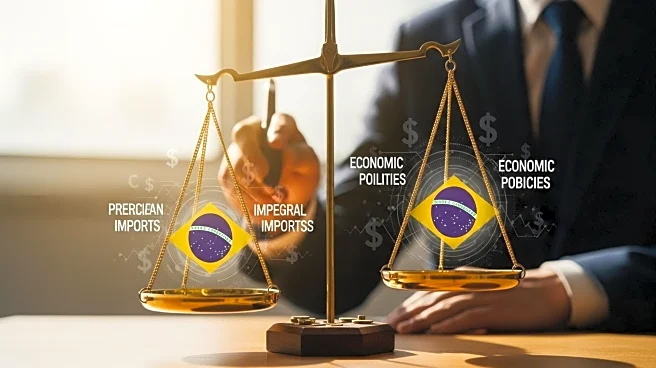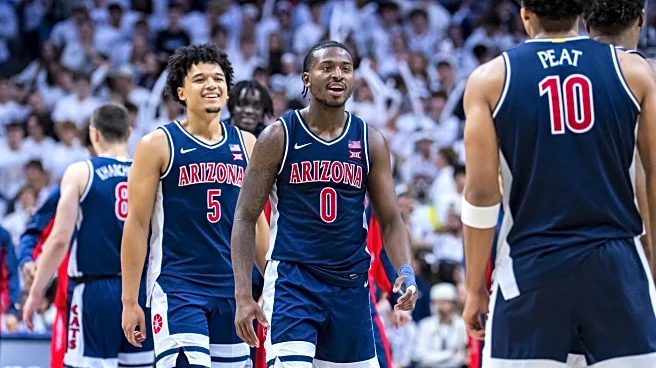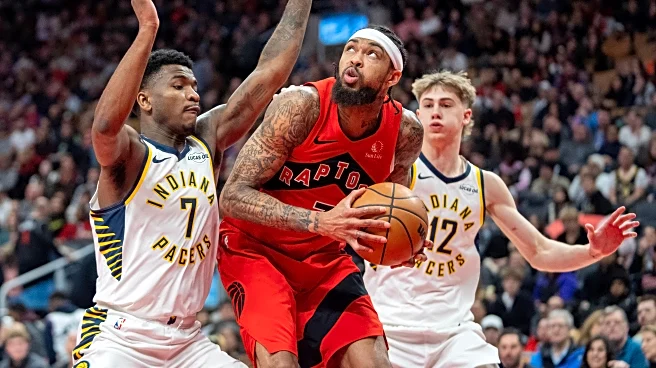What's Happening?
Brazilian President Luiz Inácio Lula da Silva has requested U.S. President Donald Trump to lift the 40% tariff imposed on Brazilian imports during a phone call on October 6, 2025. The conversation lasted 30 minutes, during which Lula reiterated his invitation for Trump to attend the upcoming climate summit in Belem. The tariffs were initially imposed by the Trump administration in July, adding to a previous 10% tariff. The U.S. government justified these tariffs as a response to Brazil's policies and the criminal prosecution of former President Jair Bolsonaro, who was recently convicted of attempting a coup and sentenced to 27 years in prison. Despite these tariffs, Brazil remains one of the few G20 countries with which the U.S. maintains a trade surplus.
Why It's Important?
The request to lift tariffs is significant as it could impact trade relations between the U.S. and Brazil, potentially affecting economic stakeholders in both countries. The tariffs have been a point of contention, especially given Brazil's status as a trade surplus partner for the U.S. If lifted, it could lead to increased trade and economic cooperation, benefiting industries reliant on Brazilian imports. Conversely, maintaining the tariffs could strain diplomatic relations and affect businesses that depend on Brazilian goods. The situation also highlights the geopolitical implications of Brazil's internal political dynamics, particularly the conviction of Bolsonaro, which has influenced U.S. trade policy.
What's Next?
Should President Trump decide to lift the tariffs, it could pave the way for improved diplomatic relations and economic collaboration between the U.S. and Brazil. Lula's offer to visit Washington for further discussions indicates a willingness to negotiate and strengthen ties. The upcoming climate summit in Belem could serve as a platform for further dialogue on trade and environmental issues. Stakeholders in both countries, including businesses and political leaders, will be closely monitoring the situation to assess potential changes in trade policies and their implications.
Beyond the Headlines
The tariffs and their potential removal underscore the complex interplay between international trade policies and domestic political events. The conviction of Bolsonaro has had far-reaching consequences, influencing U.S. trade decisions and highlighting the role of political stability in economic relations. The situation also raises questions about the ethical considerations of using trade tariffs as a tool for political leverage, and the long-term impact on bilateral relations between the U.S. and Brazil.











